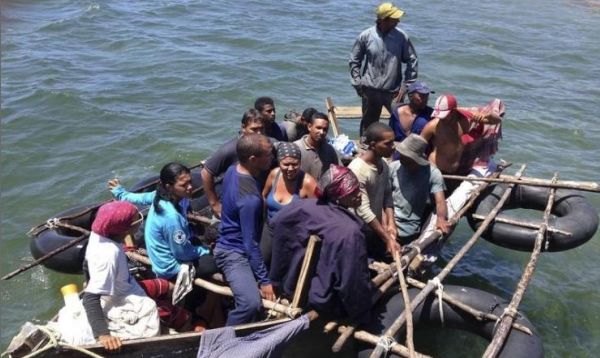Yucatan, Mexico - Mexico's navy rescued two rafts of Cuban migrants who had been at sea for several days, the maritime secretary said Sunday. Twenty-three Cubans were taken in two operations, and given food and medical care, Mexican authorities said.
In one operation, a Mexican vessel spotted a raft off the Yucatan peninsula with 10 Cuban migrants on board, the navy said. The migrants had reportedly left Cuba's Isla Juventud and had been floating for 16 days. Separately, another Mexican vessel found and rescued another raft carrying 13 Cuban nationals.
The Mexican operation comes as the United States has been grappling with a surge in Cuban migrants in recent months. Cuban migrants often come into the United States through Mexico instead of trying to make a direct trip to Florida by boat.
According to the Customs and Border Protection agency, 6,500 Cubans came into the United States without a visa through the southwest border in the last three months of 2014, a 50 percent increase from the same period a year earlier.
Last week thirty-eight Cuban migrants reportedly were intercepted by the U.S. Coast Guard and left stranded on the Coast Guard ship while waiting for the Cuban government to grant them permission to return. The migrants had left Cuba with tourist visas for the island of Saint Lucia.
Under a policy known as "wet foot, dry foot," Cubans who make it onto U.S. shores may enter the country and gain a fast track to permanent residence in the United States. But those who are intercepted at sea are turned back to Cuba. U.S. officials told the Associated Press Havana refused re-entry for the 38 Cubans because their return violated a U.S.-Cuba repatriation agreement.
The number of Cuban migrants trying to reach the U.S. has surged since Washington and Havana announced bilateral talks to restart diplomatic relations. The historic thaw, announced by President Obama and Cuban President Raul Castro in December, has sparked rumors the "wet foot, dry foot" policy could come to an end. U.S. officials have said there are no plans to change the migration policy toward Cubans.
Original article


